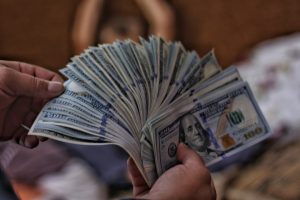Central banks are one of the most influential players in the foreign exchange market. They play a crucial role in the forex market by managing their country’s monetary policy, which in turn affects the exchange rate of their currency. In this article, we will explore what central banks are doing in forex and how their actions impact the market.
What is a Central Bank?
A central bank is a financial institution that is responsible for managing a country’s monetary policy. It is the bank of the government and is responsible for issuing currency, regulating the money supply, and setting interest rates. Central banks also act as a lender of last resort to commercial banks and play a critical role in ensuring financial stability.
How do Central Banks Impact the Forex Market?
Central banks have a significant impact on the forex market because of their control over monetary policy. Monetary policy refers to the actions taken by a central bank to influence the economy of a country. The two main tools used by central banks to manage monetary policy are interest rates and the money supply.
Interest Rates
Central banks can influence the forex market by adjusting interest rates. Interest rates are the cost of borrowing money, and they have a direct impact on the value of a currency. When interest rates rise, it becomes more expensive to borrow money, which can lead to a stronger currency. Conversely, when interest rates fall, it becomes cheaper to borrow money, which can lead to a weaker currency.
For example, if the Federal Reserve (the central bank of the United States) raises interest rates, it can lead to an increase in demand for the US dollar. This is because higher interest rates make US assets more attractive to foreign investors, leading to an inflow of capital into the country. This increased demand for the US dollar can cause its value to rise against other currencies.
Money Supply
Central banks can also impact the forex market by adjusting the money supply. The money supply refers to the total amount of money in circulation in an economy. When a central bank increases the money supply, it can lead to inflation and a weaker currency. Conversely, when a central bank decreases the money supply, it can lead to deflation and a stronger currency.
For example, if the European Central Bank (ECB) decides to increase the money supply by printing more euros, it can lead to a weaker euro. This is because an increase in the money supply can lead to inflation, which reduces the value of a currency. As a result, the euro may depreciate against other currencies.
Central Bank Interventions
Central banks can also intervene directly in the forex market by buying or selling currencies. This is known as central bank intervention, and it is done to influence the exchange rate of a currency. Central bank intervention is usually done in extreme circumstances and is rare.
For example, if the Bank of Japan believes that the yen is too strong, it may intervene by selling yen and buying other currencies. This increased supply of yen in the market can lead to a decrease in its value, making it less attractive to investors. As a result, the yen may depreciate against other currencies.
Conclusion
In conclusion, central banks play a crucial role in the forex market. Their control over monetary policy through interest rates and the money supply can have a significant impact on the exchange rate of a currency. Central banks also have the ability to intervene directly in the forex market through central bank interventions. As a forex trader, it is essential to keep an eye on central bank actions and their potential impact on the market.





